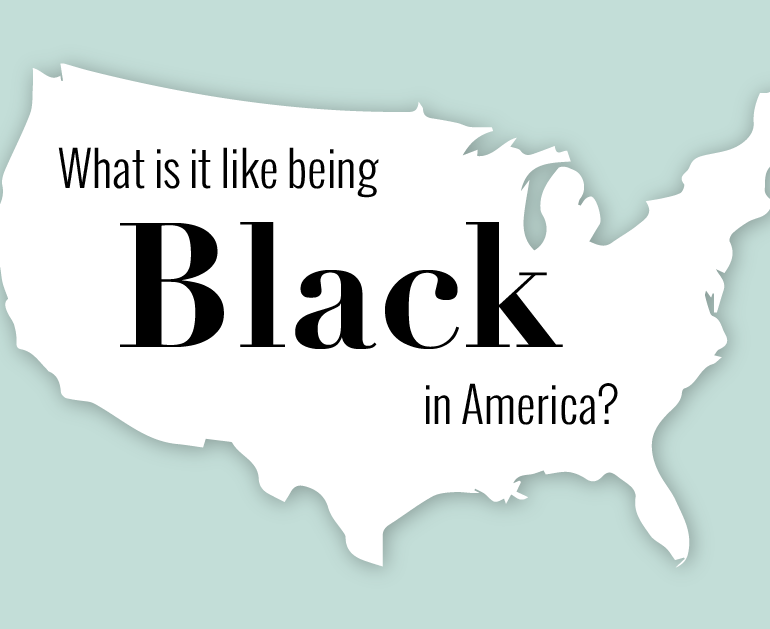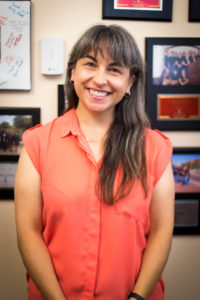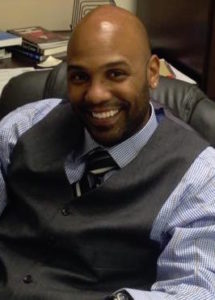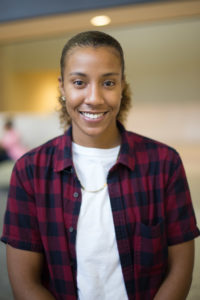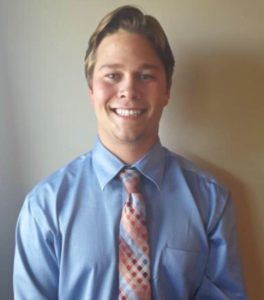Race, Fear, and how those differences drive our experiences
The first slave ship, the White Lion, arrived on Virginia’s shores in 1619. From that period on, a little more than 300,000 Africans and their descendants struggled with their freedom until President Abraham Lincoln signed the Emancipation Proclamation in 1863.
Freedom didn’t create equality. African Americans continued to face racial issues and injustices. The Civil Rights Movement began in the mid-1950s. During the movement, schools and public areas became integrated and African Americans overcame laws that restricted their voting rights.
While racial relations in America have improved immensely, there are still injustices minorities face, particularly in the criminal justice system. A study done by Cassia Spohn, the director of the School of Criminology and Criminal Justice at Arizona State University, found that African American and Hispanic males – especially those who are young and unemployed – are more likely to be sentenced to prison than their white equivalent. More recently, Black Lives Matter, a movement created in the summer of 2013 after the shooting of Trayvon Martin, has demanded dignity, justice, and respect for black Americans, especially in regard to police shootings of young black men.
To understand the plight of black men and women in America, Ball Bearings sat down with Melinda Messineo, the chair of the department of sociology at Ball State University, Leon Jackson, the Youth and Family Programs Director for Indiana Black Expo, Inc., along with Allyson Edmonds, and Vince Reese – both of which are students. With their responses, they discuss what it means to be black in America. After initial interviews, each read the responses of the other three, and then reflected on what the others said.
Melinda Messineo is the Chairperson of the Department of Sociology and an associate professor of sociology at Ball State University. She has an MA and PhD in Sociology, which she received from the University of California at Riverside. Her current research focuses on race, class, and gender in the media.
If you are black, I think that you can’t help but recognize your historic position as a black American. To exist in America requires that it frames your existence, whether you like it or not, and I think it contrasts to other minorities who can be more selective and can have this voluntary identity. You know, when you think about people who are Irish, they can choose to be Irish on St. Patrick’s Day, and the rest of the year it wouldn’t really matter. This is not an option that is available to black Americans.
In sociology we talk about how race is a social construction. We took these physical differences and made them meaningful. Now, one of the risks of that argument is that a lot of the time people will say, ‘Well, race doesn’t matter,’ or, ‘I don’t see race, because race is just a social construction.’ This idea of color blindness is problematic because it ignores the fact that black Americans exist in an America that has this entire cultural, historical view of what that body in front of them means.
I’m very concerned that when sometimes people hear this idea that race is a social construction they go, ‘Okay, well, race doesn’t matter, it’s just a social construction.’ And I completely agree that race shouldn’t matter, like we use race to mean things that it should not, that are stereotypes, that are misunderstandings, that are myths in our culture. However, to say that race does not matter, is an inaccurate statement because any black American will tell you that race still matters in America. It impacts their lives. I’ve talked to black male students on campus, and they said they see people cross the street as they’re walking because they perceive them to be these dangerous black men. I had this one student in my class, and he was a big guy, really tall, and he said, ‘I’m always trying to make people at ease with me, like when they see me I look like this scary black man, and I feel a lot of responsibility to put them at ease. And sometimes I’m just not thinking to put them at ease, so they immediately go to ‘scary black man.’ And he said, ‘You know, that’s a burden, and you can see it as being a very powerful thing. People will get out of my way, I’m walking down the street and people won’t mess with me, but it’s also alienating and separating.’ Like, people walk to the other side of the street because they’re so intimidated by his physical body. We have all this culture and history and myths around them. And as a white female, I’ve never had that experience. I’ve had other things that I’ve had to deal with and confront but that has not been one of them.
Leon Jackson grew up in Anderson, Indiana. He has a bachelor’s degree in marketing from Indiana State University and a master’s degree in education and leadership from University of Nevada, Las Vegas. Leon continued his education and has his PhD in workforce development and organizational leadership. Leon now works as the Youth and Family Programs Director for Indiana Black Expo, Inc.
Well, what it means to be black in America is to constantly feel like there’s a target on your back. Whether it be from individuals in your own community, or individuals from other communities. Being black in America is a complex thing. You’re taught about slavery and the hardships of what your ancestors went through. And a lot of the struggles that you grow up experiencing are remnants of what they had gone through. Now, by no means do I think that I’ve gone through or experienced anything like what my grandparents or their grandparents or their grandparents experienced. But you certainly feel that burden because you feel like you’re always being targeted.You’re taught during Black History Month that your history is separate from American history. When in fact, it’s not. You’re taught that your ancestors were slaves and you don’t really hear about the fact that your ancestors created math and, you know, lived in sophisticated and civilized towns and cities.
So there’s this constant seeking of knowledge about who you really are. Your family trees only go back so far. Your knowledge of your family only goes back so far. And so you’re kind of left guessing about where you come from in some respects. I’ll say this, being black in America, you find that you’re always at war with something.
When you look at the Stanford rape case, and many cases like it, you understand that justice for you is not the same as justice for other people. One of the papers that I did when I was in my doctorate program talked about the disparity in sentences between crack cocaine that’s found in the African American community, and powder cocaine that’s found, typically, in a Caucasian community. The disparity is in the sentencing. African American males are put in prison at a rate that’s almost insane. You have to understand that whatever you do is going to be magnified.
You almost live in a world where you don’t feel like your life is valued, you have to be extra careful, and you’re judged well before anyone gets to know you. You’re really just kind of led to believe that you being an American is a privilege. There’s other instances where you have individuals saying, ‘Get off welfare,’ and don’t get me wrong, I’m not a fan of welfare, necessarily. But when you have decades of Caucasian individuals getting rich off of minorities, and then when you’re looking to get help or assistance they kind of say, ‘Lace up your shoes and do it for yourself.’ You know, it’s just a very difficult thing because you feel like the world is against you.
But the other things that make being African American interesting is that African Americans aren’t on the same page. That makes it also very frustrating. And when you look at the spending power of African Americans, If we were a country, as African Americans, we’d be ninth in the world as it pertains to spending power. That says a lot. But, we don’t spend money in our own communities. We don’t support one another. We don’t do the things that a lot of other ethnicities do, so we find ourselves constantly at the bottom. And until we come together and learn to keep our money in our communities, nothing is going to change. I believe that being black in America is not understanding – as a community, we don’t understand where our true power lies – and because of that we’re mistreated as it pertains to the legal system, the education system, and all the different social institutions. And they can do that because we don’t have an African American agenda. We’re not united. We’re not together.
There’s a constant inner fight to fit into all of these different areas and make it. And position your kids to be able to have things that you didn’t have and your grandkids to do the same and, you know, their kids. So you know, it’s a struggle – it’s a struggle for sure.
Allyson Edmonds is a senior journalism news major with a concentration in entertainment broadcasting at Ball State University. She is from Indianapolis, Indiana. Allyson identifies as homosexual and is involved with the National Association of Black Journalists at Ball State. She served as Vice President her junior year and is President this year.
I see it as an opportunity. Because blacks are the minority, we are looked down upon as if we can’t accomplish the same things as the majority. Coming from someone who is not only black, but a homosexual female, it can be harder at times to feel that I’m accepted in most places. I honestly believe that having a black president has shown America that we are more than just gun violence and drugs, but humans who are intelligent and hard-working individuals. As shocking as it is, I have never been a victim of harsh racism or any racism – period – from someone who is not black. Being black is something I very well take pride in, and am proud to live in this country. The color of my skin doesn’t decide who I am or where I go, it’s who I am that determines my life in this country.
But in addition to that, I think that it’s unfair that blacks are treated in a way that others wouldn’t want to be treated. Cops are shooting young black men for unnecessary reasons. I don’t categorize all cops as bad ones but the justice system needs change, especially toward African Americans. It’s unfair to have to watch my people suffer. Many – not all – white people don’t stand up for us, even when we’re right. Why is it that when white people are asked if they would want the same treatment as blacks, no hands are raised? Why is it that cops are shooting victims even when they are already on the ground and pinned? Being black in this country has its pros and its cons but being treated fair – as a citizen – is something that definitely needs work.
Vince Reese grew up in a small, rural community in southern-central Indiana. For all of his secondary education he attended Indian Creek Schools – a predominately white school system. Vince is now entering his senior year at Indiana University as a dual major in marketing and professional sales.
If you could really put yourself in someone’s shoes, for a day, I’m sure that it would change your perspective completely. I was just thinking about what happened in Minneapolis [with the shooting of Philando Castile]. The policeman pulled over an African American family, and the guy got shot – killed. He had his concealed carry and the guy thought he was going to pull a gun and then he got shot. It’s all on video and everything, so obviously, the Internet is responding to that.
I think at one point, a black guy in Bloomington robbed some store, I’m not sure. I was with my friend James, and he got really emotional about it. What it does for him, he said, is that all of his life he’s put effort into trying to be the opposite of the stereotype, and it just lets him down. I mean for me, seeing that – a white cop do that – obviously it hurts, too. There’s definitely good and bad in any race. And so, to say that a whole group is bad, I mean, that’s obviously racist.
But, what does it mean to be black in America? I’m sure it’s exhausting. Not only are there many that are born in poverty, but you’re expected to overcome that. And, not only that, but you have a target on your back your entire life. I’m sure that it’s overwhelming both mentally and emotionally, whenever things like this [Minneapolis shooting] happen.
In Trafalgar [my hometown], we’re well known to be very good people and so there are often times where I see people that I don’t even know. At no point do I ever feel threatened, nor does someone look at me as a threat. And I mean, I couldn’t even imagine someone looking at you as a threat when you’re just trying to live. We all have the same goals and the same path in mind and we put our shoes on the same way. I’m sure to have someone look at you as a threat hurts. I can’t even imagine.
REFLECTIONS
MELINDA MESSINEO
For Leon, one of the things that’s really striking in his response, is the feeling of being a target and how his life is so dramatically impacted by history. And I think that’s such a critical part of understanding race in the U.S. because a lot of times students I talk to say, ‘Well, I wasn’t a part of slavery,’ or ‘I didn’t do anything like that.’ But, there is a legacy that goes from generation to generation, and I think Leon’s comments really embodied that. And I think his comments really illustrate what we talk about in sociology as this structural and institutional inequality.
Allyson’s comments had some additional things that I thought were really interesting because she was talking about what we talk about in sociology as intersectionality. She talks about her experience as being a black student and a homosexual female so she’s got these different labels that our culture puts on her and this intersectionality of having these three experiences together really puts her in an interesting place in our society and how she has to face sexism and attitudes about sexual orientation and racism. Again, putting these very macro-processes that we study in sociology all the time into real life words. I wish my students could hear these stories and know that these are people close to them. You know, a lot of students have this idea that everything’s great now, equality is pervasive, and that the racism we see in the media is isolated. And I think it’s bigger than that, so these are super powerful stories.
And then Vince’s response I thought was also interesting talking about these comparisons that he has seen in the media. And how people’s experiences are interpreted very differently and again this is a great example of institutional racism and how it reveals itself out in the everyday world. I like the phrase he used, ‘I’m sure it’s exhausting.’ It affects every part of your life, and that it’s exhausting and it’s hard to always be under that pressure.
LEON JACKSON
Everybody’s experience is going to be different no matter their race or ethnicity, based on how you were raised, the different experiences that you had, that’s going to kind of provide the outline for how you view the world. While some may feel that they have certain struggles, and others, that they don’t have those same struggles, a lot of it is just perception and life experience. So, it’s really hard to say. I don’t really have a feeling on how other people feel mainly because I can’t say whether or not that’s the right way to feel or the wrong way to feel because your life experience is going to dictate how you feel about certain things.
If you grew up around a lot of white people, you may not feel those same stressors primarily because either A, you learned to cope with them and don’t recognize them, or B, you don’t let them impact how you feel because you come in contact with a lot of good people from other ethnicities. That plays the biggest part in how you view the world and how you view your experiences. I mean, somebody could come up to me and say [the] N-word, and personally, I would be offended. But I’m not going to want to fight you or attack you. I might laugh at it. But someone else who might come from a different background might see it as, ‘Hey, I have to defend myself. I’m being attacked.’ It’s all about how your life experiences have shaped your responses and your behaviors.
ALLYSON EDMONDS
So for Melinda’s response, I like a lot how she talked about social constructions. I guess people never really title it that, but in reality that’s what it actually is. We’ve been categorized into these different categories where it’s – like she mentioned – you have black people in a category, but there’s good and bad. You can’t blame all black people for being bad, you know? And she talks about attaching cultural differences. People have labeled us into different categories. If everyone is labeled differently to begin with, it’s kind of hard for us to come together as a whole in the first place when there’s already that separation.
I’ve never had anything against white people or any race. I’ve always had a pretty diverse group of friends, and they are on the same page as me. It goes back to what we were saying earlier, about how people are put into categories and you can’t really blame everyone for the bad when some people are good, too. It’s like the whole cop situation. I don’t think anybody mentioned in their responses, but the white cop gets on the black kids, I do agree how it’s been that way, white cop black male, all these situations, all these cases, but we can’t blame every single white cop because not every white cop is the same. And black people are getting so wound-up because all these things are happening and we do have to take a look and listen to what we’re trying to tell them as well. If we want the same rights, if we want to be treated the same, we can’t blame all white people for killing black people. That’s just how I feel.
For Vince Reese’s response, how he talks about when his friend heard about somebody robbing the gas station, I think it was. It tears you apart to know that there’s black people out there living those stereotypes. And it’s kind of upsetting because not all of us are going to be good. There are bad people in each race. That’s life. I just feel like all white people think that black guys are gang affiliated and related to violence and are growing up in ‘the hood’ or in poverty. And they always see that we don’t have the same opportunities as them and it’s hard for us to come up because in all honesty, the majority of African Americans do grow up in less fortunate environments and it’s harder for us to get corporate America jobs. Personally, I haven’t experienced that. I grew up in the suburbs, and my family has always been pretty blessed and fortunate, but just looking at my race, that’s usually how it is. I feel like we’re not given as many opportunities to make it there because many families are blessed with rich parents that own businesses, land, property, and all that, so they pass that down to their kids, and their kids are inheriting a lot of money already. That’s just how I feel.
I think that if we preach that we all want to be treated equally, there’s always a good side versus a bad side. Not every white person is going to be good or bad, not every black person is going to be bad or good.
VINCE REESE
Starting with Melinda, she was great. I never really thought about the impact of the many social constructs that we’ve grown up with, not only race, but she talks about gender – the sexualizing of females. When she talks about the black male in her class, and how people walk to the other side of the street. One of my really good friends, he’s a pretty big black male and probably the nicest person I’ve ever met. He has the same issues. He tries to blow it off, but he’ll vent to us and be like, ‘Dude, what the heck? Am I intimidating? Do I look scary?’ I know he jokes about it, but I’m sure, deep down, it definitely hurts. It’s an interesting thing to think about because I don’t think anyone has ever really been afraid of me. I can’t really imagine it.
Then going on to Leon Jackson, he started off pretty much like what I had [said], just like, it’s exhausting. But he talks about how there’s this constant seeking of knowledge about who you really are. I thought that the conversation he had about Black History Month, and the hardship and you’re taught so much about, but then wanting to learn more about the awesome things that they did and their great history, not just the history that haunts them. I hadn’t really thought about how African Americans feel about Black History Month.
Going on to Allyson Edmonds, it’s kind of shocking to me that she’s never been a victim of racism. I mean, to be a college kid and to never feel like you’ve been treated differently because of the color of your skin – that’s awesome. And especially being a homosexual female, she is someone that people would think of as someone being treated differently. But that’s awesome that she surrounds herself with people who support who she is and that she’s comfortable being who she is. We live in a time where that is being pushed. I think it’s one of the best things about our generation – we’ve made that happen.
And whenever she talks about many – not all – white people standing up for [black Americans] when they’re right, that’s definitely true. It depends on the community that you grow up in. There are definitely areas that are way more comfortable with diversity than where we are from.
Racism in America has come a long way since the seventeenth century, but the recent shootings of Philando Castille, Dallas police officers, and the fight between the Black Lives Matter and the Blue Lives Matter movements, indicate that the country is still racially divided. Roughly sixty percent of whites and African Americans believe that race relations in the United States have worsened in the last two years, according to a PBS NewsHour and Marist College poll. Just more than half of whites think African Americans have equal opportunity to become middle class, while the majority of African Americans disagree. A Pew Research study found that when dealing with the police, the courts, and the workplace, whites were thirty-six percent less likely than African Americans to think that African Americans were treated unfairly.
Although strides have been made, being black in America is still accompanied by challenges others do not face.


